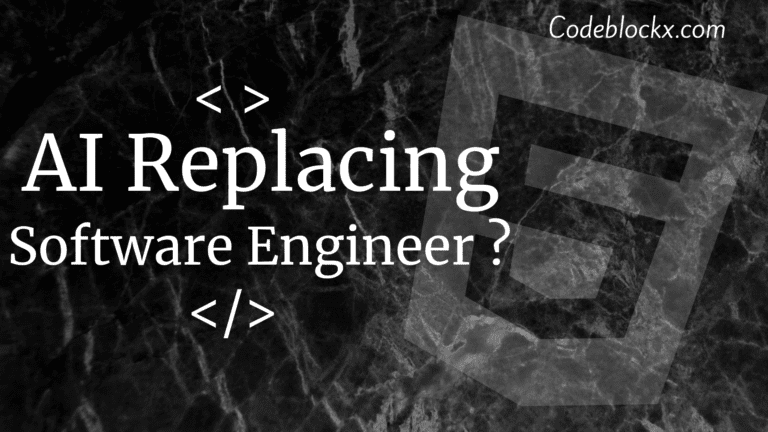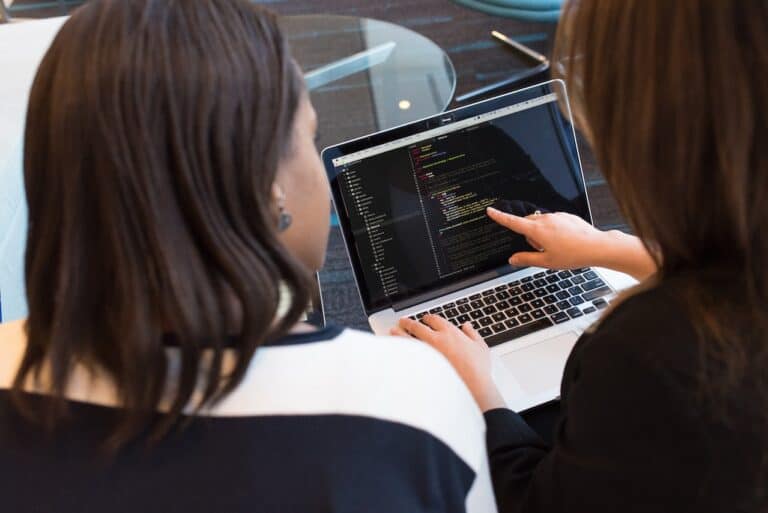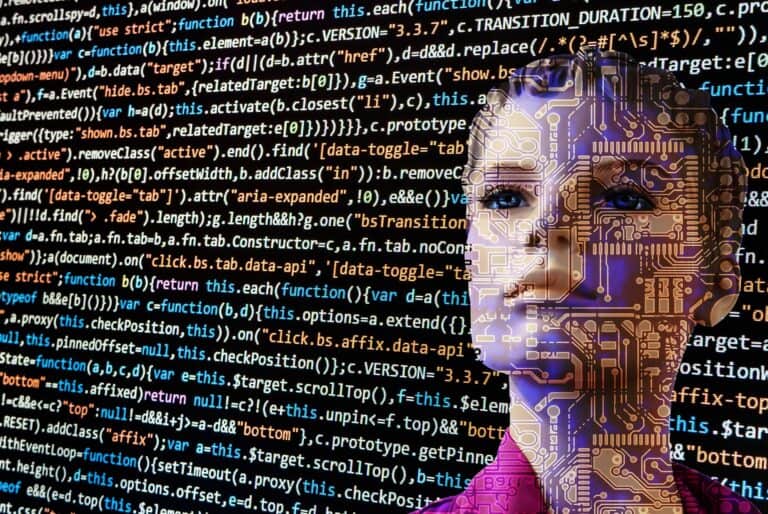Artificial intelligence (AI) is the ability of a computer or a robot controlled by a computer to try to do tasks that are typically done by humans as they require human intelligence and discernment. Though no AI can perform the wide range of tasks that a normal human can, some AIs can match humans in specific tasks. In this blog we will learn will AI replace software engineers.

What is the aim of artificial intelligence?
Artificial intelligence (AI) makes it doable for machines to be told from experience, adapt to new inputs, and perform human-like tasks. Most AI examples that you simply hear nowadays, from chess-playing computers to self-driving cars—bank heavily on deep learning and language processing.
Voice assistants, image recognition for face unlock in cell phones, and ML-based monetary fraud detection is samples of AI software presently being employed in everyday life. Typically, simply downloading AI software from an online store and having no extra devices is all that is required.
Software engineering
It is the application of engineering principles used in the field of physical systems to the design, development, testing, readiness, and management of software system systems.
Nobody doubts that AI is obtaining far better at programming each day. And it’s an undeniable fact that AI-driven tools can ultimately be much better than people at programming. But machines will not become self-sufficient from humans overnight, and the ability to write useful and practical code that spans multiple lines necessitates a level of intelligence that approaches the popular singularity.
Programmers do not write code by hand. They’re already employing a variety of intelligent tools that enable them to automate their compilation efforts. And that is simply what AI does: It assists programmers. But a future within which artificial intelligence is ready to build all the proper decisions, whether to develop code from scratch or to interpret the industrial value of every feature, continues to be extraordinarily far away.
Most of the new AI-based tools instead increase their accuracy and performance through machine learning. Due to extensive trial-and-error, your neural network architectures assist you to automate your tasks better and a lot of precisely.

And there they’re better than humans: they notice and fix errors. But they are not autonomous enough, and doubtless never are going to be to own their own “opinions” about which is the best way to solve a problem or generate a replacement feature.
Ultimately, people can move far from the “programmer” job and easily learn to “drive” their machine-learning tools to support them a lot of efficiently. Since AI automates a sturdy task that previously needed very special knowledge, developers have plenty of time to focus on the “human” aspects of their work.
People are perpetually required to fill the gaps that will always be lacking in machines, like interacting with different developers, researching new, daring solutions to identified problems, or just implementing their creativity.
Advocates of classic software development may justifiably say that there’s more to good software than code: an easy structure, for example, valid test data and a sensible test environment, and interfaces to other applications.
Currently, one might say that each one should be placed together by a thinking person, viewed logically, and with loads of experience to finally code the program. That means, even the foremost intelligent AI wants a person’s specifications.
Is AI more advanced than software engineering?
Frameworks, as development frameworks or libraries with predefined definitions, make software developers’ lives easier. Containerization and the serverless concept are also moving in this direction.
The developers watch from outside the center of the application, while the runtime environment is formed and offered by others. Additional or less annoying peripheral tasks, like the implementation and configuration of the hardware, the management of the traffic, and the like, are no longer necessary.
Now, frameworks are by no means simply static. They optimize the code, recommend the completion of Google searches, and convert diagrammatically created templates into source code. So the concept that somebody cannot get to be a developer to inform an AI what an application ought to look like cannot be that far-fetched.
An instance: an explicit web designer might in the future deliver his mockup to the AI that then creates the markup language code from it. All the foundations and all the knowledge that the AI needs for this could be very simple to teach.
Furthermore, the AI could augment not only the program code but also the program itself using user data or another available source of data. For example, on a website, where is the best place for a picture?
How many online users don’t desire to scroll or only see the website on the go? Do the surfers notice refined colors as more pleasant, or does one reach the target cluster better with bright designs? With this or similar data, AI may learn what the targeted user likes best and progress the website accordingly.
The distinct strength of such systems: they may calculate quickly, acknowledge patterns, and adapt general thought if the conditions change.

AI can augment the workforce.
AI is a wonderful partner. For example, several corporations use pair programming techniques, within which specialists from different areas develop software together. Everybody contributes different experiences and approaches. The result is additional user-oriented applications.
When we quote software 2.0, the training machine comes as a high-quality partner, that may create recommendations based on what has been learned and may automate check runs with varied data.
However, the artist determines in which direction the general construction moves, as not each optimizing recommendation results in the particular goal of intuitive software.
It should be recognized that AI remains very far from the power necessary for any smart developer. We are far from having an AI capable of making Facebook, desegregating a graphic charter, or managing the errors of a form.
And artificial intelligence in its “deep learning” form will not be ready to perform without “training,” that is, dealing with it for an eternity of things so it can learn on its own. This is often exactly where the human being, the coder, can need to remodel his profession.
How can AI impact programming jobs?
The fact that it also appears that the works of software developers will fundamentally change Neural networks or AI will facilitate and improve digital work, but they’ll hardly replace developers within the predictable future.
We are already using small-scale learning systems, from the auto-completion already mentioned in the Google search to playlists from the music streaming service provider that invariably offer the right music per individual taste, current mood, and time of day.
The need for application developers has augmented significantly. Digitization is happening in all areas of life and work—after all, somebody needs to develop the AI, manage it, and set the framework and data.
For instance, developers will doubtless write less and less code, and even less will review or optimize it. Soon, they’ll work more conceptually in the areas of information science or digital innovation.
Developers also will have to be compelled to confirm that AI isn’t left to its own devices which it’s tested in keeping with human conditions. This may also mean not designing a website in keeping with a calculated optimum, but deliberately breaking out—in short, operating creatively.

What will the future of AI hold?
In short, AI is not nonetheless able to replace programmers. but current projects demonstrate that we’ll be able to ask him to code for himself within the comparatively near future. In the meantime, it’s part of the “augmented” developer movement, permitting it to supply fewer bugs and code faster.
So there’s no need to feel compelled to worry about software developers. Some recent jobs would possibly get replaced. However, a talented developer isn’t replaceable by AI for a minimum of the next one or 2 decades. Keep up with the latest technology and develop your skills. AI is here only to assist us, not to replace our jobs. However, AI will have an even greater impact on the globe than other innovations in history.
So, can AI replace software engineers?
The accurate answer is still: “no.” However, engineers will require a broader base of capability as software engineering will become a lot of scholarly discipline with fewer routine tasks, fewer segmented specialties, a larger demand for compostable design skills, and greater general specialization in performance, reliability, property, and security over ancient programming.